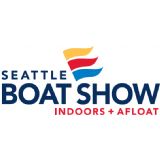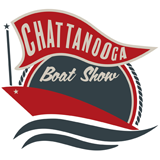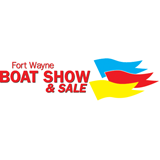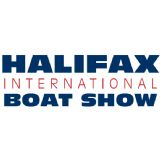|
|
|
| Passenger ships Waste handling solutions
|
|
Passenger vessels of all types, from river cruisers, small coastal ferries, and RoPax ferries up to the world''s largest cruise liners, generate a huge variety of solid and liquid waste streams. These include waste oil from the engine rooms, black water, grey water, bilge water, dry waste, food and galley waste and others. All the waste needs to be processed - initially onboard and later on shore.
International and local regulations
Waste handling onboard ships is clearly regulated. IMO sets the international standards and defines special regulated areas. Individual nations or groups of nations have their own regulations. Examples are the US EPA and the Helsinki Commission, HELCOM.
In addition to international and local regulations are individual port regulations. When it comes to landing and disposal, every country and every port has different requirements, facilities and cost structures.
Cruise ships and large passenger vessels
Although passengers on all types of ships want to see clean oceans and ports, preserving the marine environment is a particularly high priority for the cruise industry.
Cruise ships and large ferries generate huge volumes of dry waste and food and galley waste due to the large numbers of people onboard, their hotel-type operations and tax-free sales.
A modern environmentally friendly, waste management system is essential to allow unlimited worldwide operation of the ship. To gain full flexibility regarding choice of destinations and itineraries, ship owners and operators increasingly seek solutions that go beyond compliance with current international, national, and local regulations.
Zero discharge in sensitive waters
Smaller vessels, such as ferries and river cruisers operate in highly sensitive coastal areas and rivers where zero discharge policies are often in force. Storage space for waste onboard is very limited. However, port calls are frequent making it easier to dispose of food waste that would otherwise generate unpleasant odours.
Onboard passenger ships, unprocessed waste is a potential source of safety and fire risks and occupies a lot of space. Untreated food waste poses health risks and attracts birds and even rodents.
Efficient, fully integrated waste handling solutions are required to ensure that waste poses no dangers for passengers and crew or the operation of the ship at any time.
Environmental class notations
Most of the class societies have developed their own environmental notations that may be applied to a vessel and have a direct influence on onboard waste management. Participation by shipowners is voluntary.
For example, driven by pressure from their customers, a growing number of passenger shipping lines are specifying DNV Clean and Clean Design notations for their newbuildings. The notations award owners and operators who choose to design and operate their ships in an evironmentally sustainable manner.
DNV Clean notation stipulates that the vessel must be designed and operated in accordance with current and future regulations for protection of the environment. Technical and management processes and procedures for collection, transfer and storage of waste must be adopted. The Clean Design notation is based on the same Clean goals but is stricter. It stipulates that the constructional design and operation of vessels should be such that it minimizes their impact on the environment.
Dry waste and food waste
Important factors relating to dry waste and food and galley waste are the ship''s operating profile, the number of people onboard, length of time between port calls and amount of storage space available.
Waste accumulates fast and onboard incineration is increasingly regulated. Fewer newbuildings are being equipped with incinerators and more waste has to be treated and stored onboard and subsequently landed.
In a modern waste management system, dry waste is separated into fractions onboard the ship to allow for recycling, and the volume is reduced by compaction. This reduces transportation and disposal costs. Waste handling from ship to port/waste station is optimized.
An important factor for passenger ships is how waste is moved around the ship. It is undesirable, for instance, to carry or wheel it across lounge and bar areas. This is unsightly for passengers and can result in liquids dripping on to expensive carpets and fittings. A modern waste handling system will include chutes that transport waste from various decks down to a garbage room.
Food waste is collected, ground where it is produced and discharged into the sea where permitted. Thus the work for the crew is minimized and proper hygiene is maintained in the galley. If landed, ground food waste can be sent to plants that produce biogas.
Central vacuum cleaning
On passenger ships, cleaning cabins is made simple and convenient by means of a central vacuum cleaning system, which also ensures a healthy dust-free atmosphere onboard. The cleaning equipment is always readily available, labour saving and safe since it does not need to be carried manually around the ship.
Waste handling solutions from Uson Marine
Uson Marine designs, configures and supplies advanced waste handling solutions for passenger vessels of all types, from river cruisers, small coastal ferries, and RoPax ferries up to large cruise liners.
Our solutions reduce the cost and simplify the logistics of waste handling and disposal onboard ships, saving time and money for the owner or operator and reducing the workload for the crew. Uson''s solutions can easily be retrofitted into existing vessels.
Uson Marine offers a professional consultancy service for clients considering investing in modern, environmentally friendly waste management systems for newbuildings or for retrofitting into existing ships.
|
|
| Related Products |
|  Merchant vessels Waste handling solutions Merchant vessels Waste handling solutions
Uson Marine AB
Merchant ships of all types, ranging from small feeder ships to car carriers, giant container vessels and oil tankers, travel the oceans daily transporting ... | |  refrigeration container refrigeration container
Qingdao CIMC Special Reefer CO.,Ltd
refrigeration container... | |  41??ver-wide Steel Reefer With Protect Frame 41??ver-wide Steel Reefer With Protect Frame
Qingdao CIMC Special Reefer CO.,Ltd
1. External dimension: 41''3" x 2500 x 9''10"
2. Steel or Aluminium structure, high strength and low tare weight
3. With standard 40ft bottom and top ... | |  VHF MARINE RADIOTELEPHONE FM-4000 VHF MARINE RADIOTELEPHONE FM-4000
Furuno Electric Co., Ltd.
With Class-D DSC Modem and CH70 watch receiver
The FM-4000 is a rugged, reliable 1 W and 25 W radio with built-in DSC functionality built to withstand ... | |  4.5" GPS/WAAS NAVIGATOR GP-32 4.5" GPS/WAAS NAVIGATOR GP-32
Furuno Electric Co., Ltd.
Compact in size, waterproof, yet big on power, features and performance, Furuno?? GP32 is perfect for a wide range of smaller fishing boats and pleasure ... |
|
|
|
|


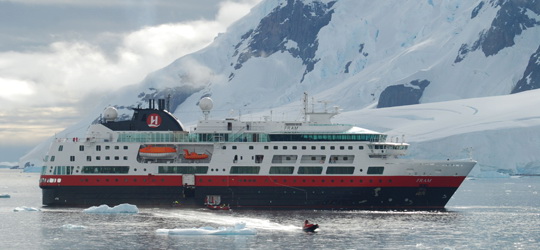
 Merchant vessels Waste handling solutions
Merchant vessels Waste handling solutions refrigeration container
refrigeration container 41??ver-wide Steel Reefer With Protect Frame
41??ver-wide Steel Reefer With Protect Frame VHF MARINE RADIOTELEPHONE FM-4000
VHF MARINE RADIOTELEPHONE FM-4000 4.5" GPS/WAAS NAVIGATOR GP-32
4.5" GPS/WAAS NAVIGATOR GP-32